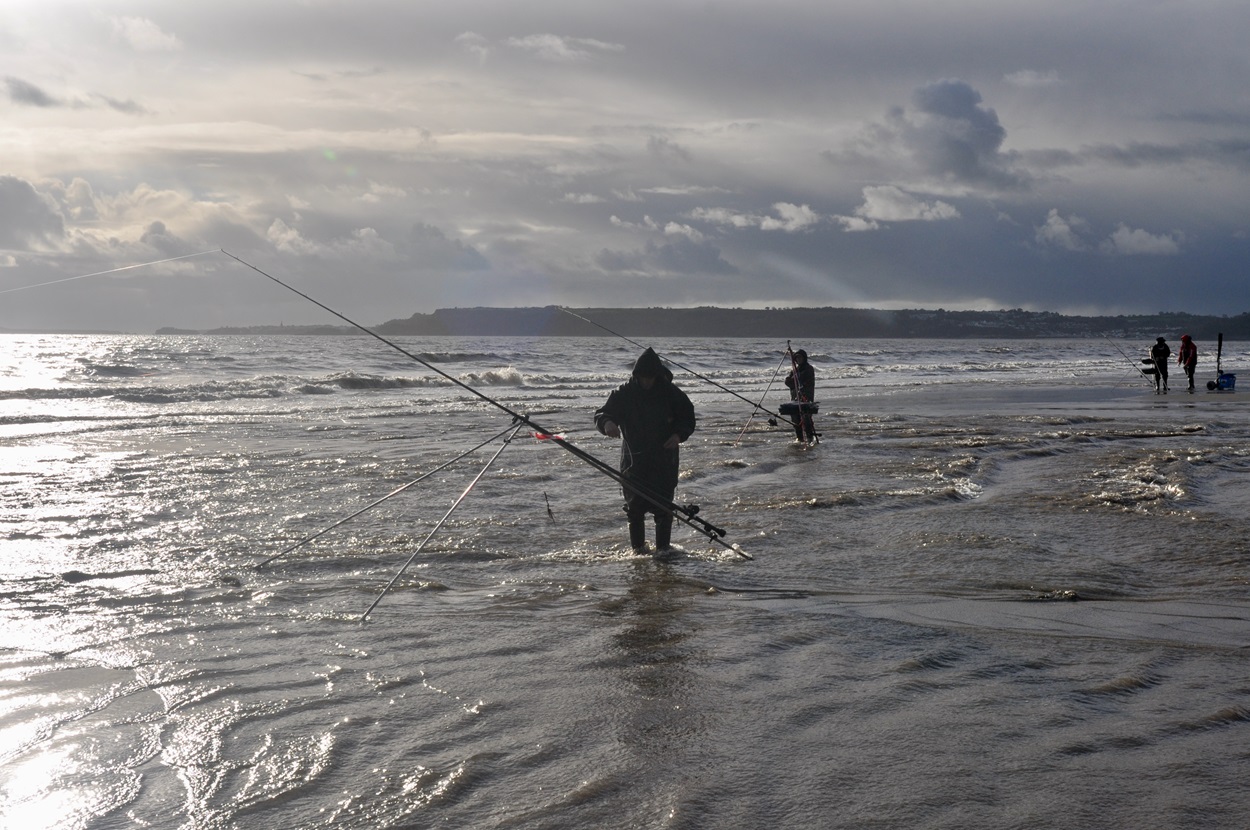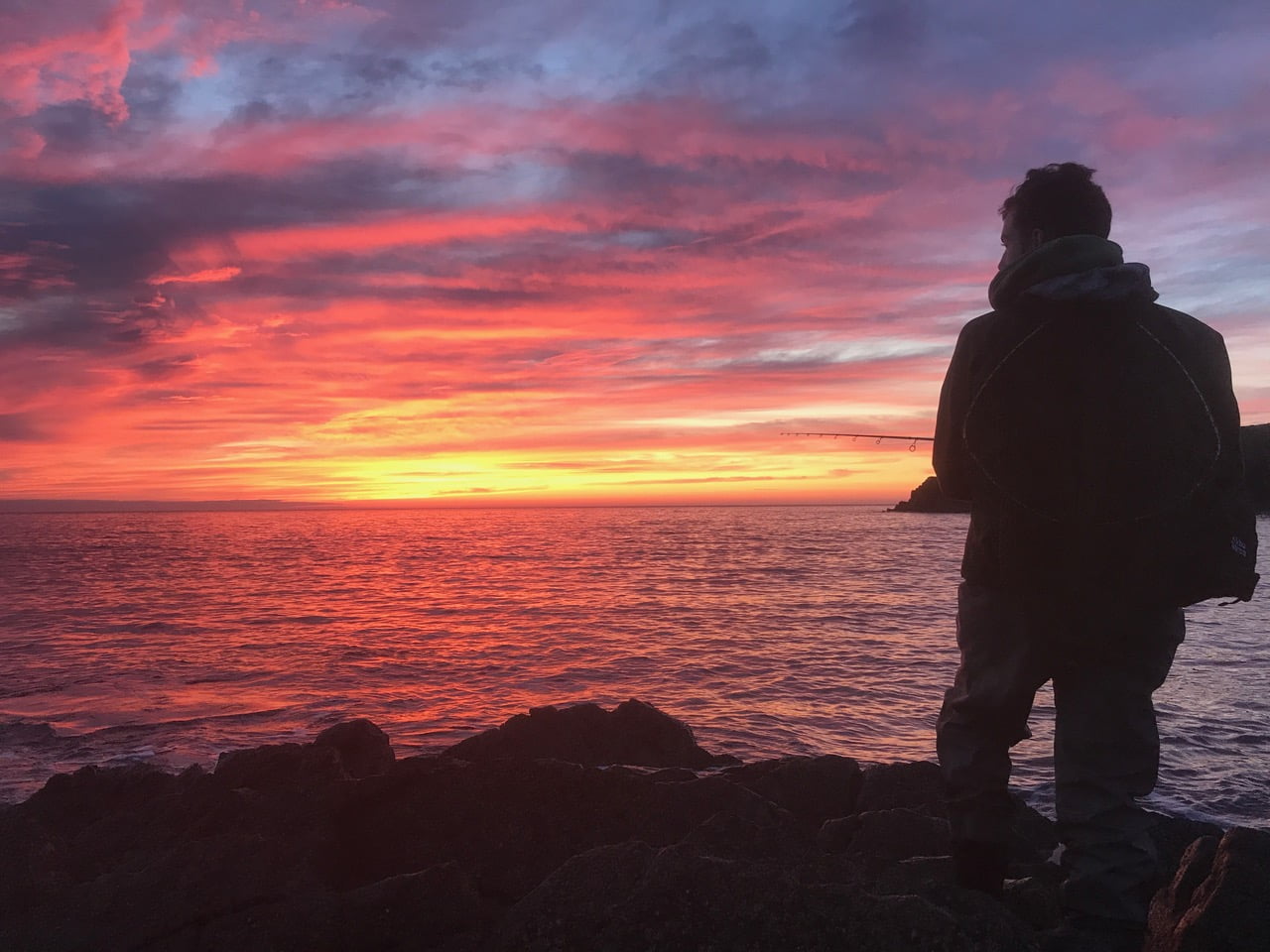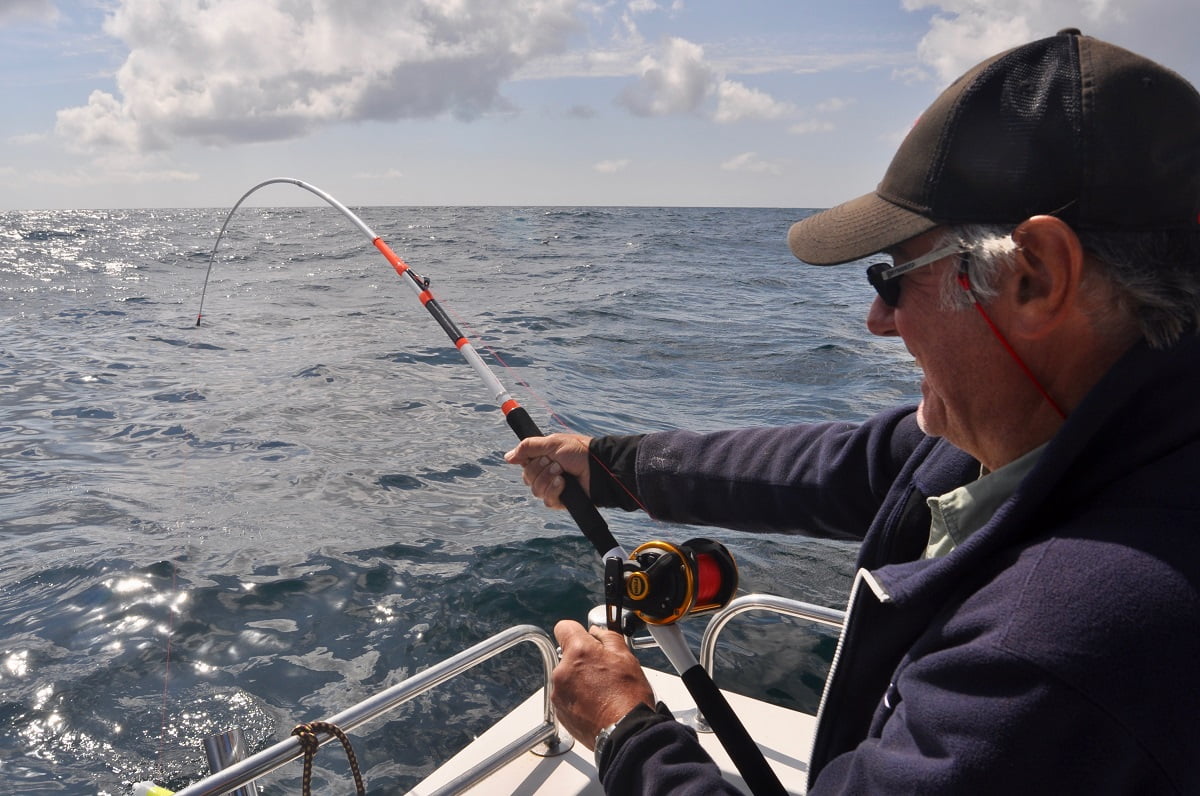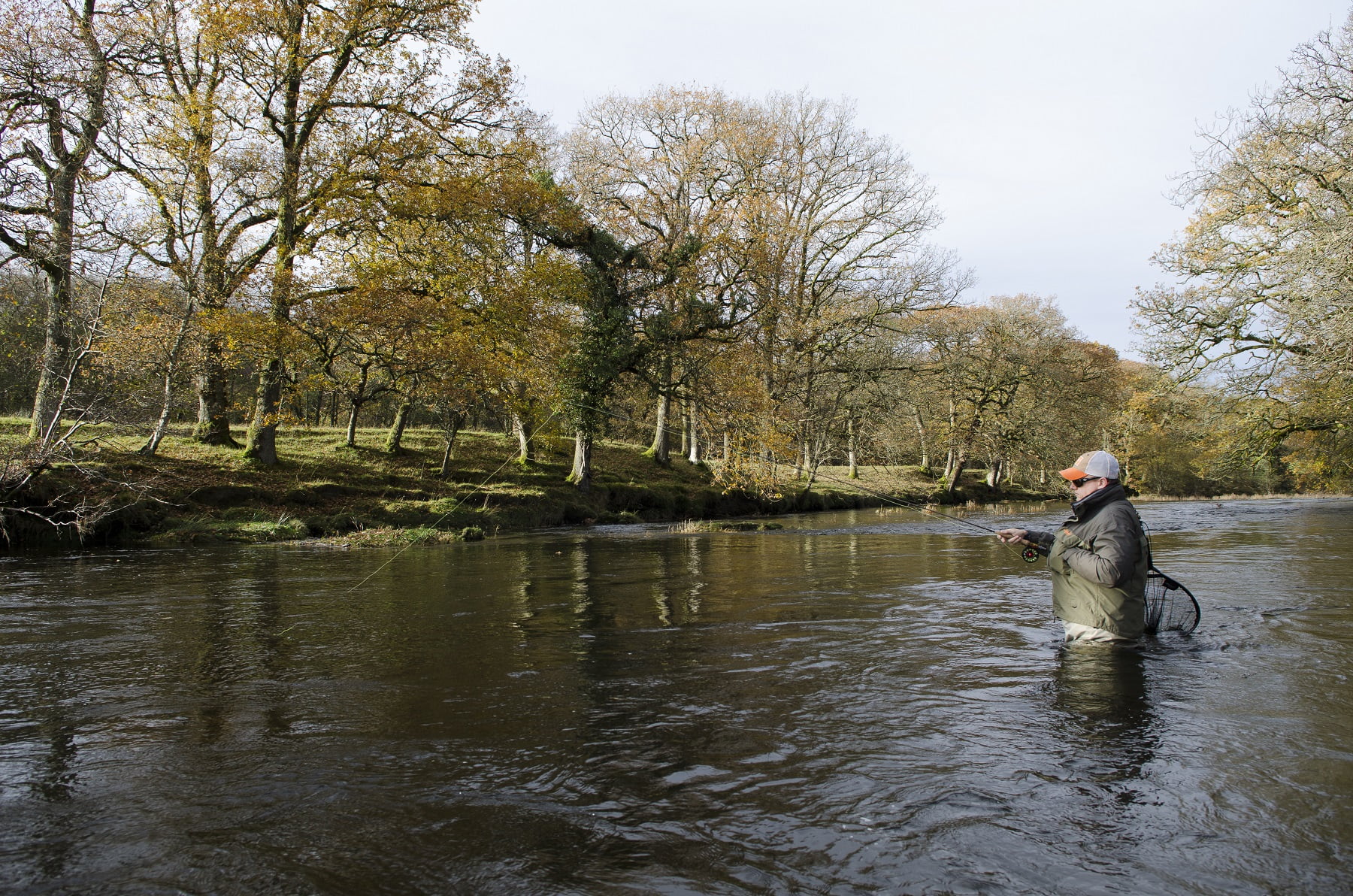Winter Beach Fishing In Wales
Many anglers associate beach fishing with the warmer months of the year, which is hardly surprising as there is no finer way of spending a hot summer day than driving to the coast and standing waist deep amidst a lively surf. However, the fishing you can experience during the cold months of the year on many Welsh beaches can be very good, too.
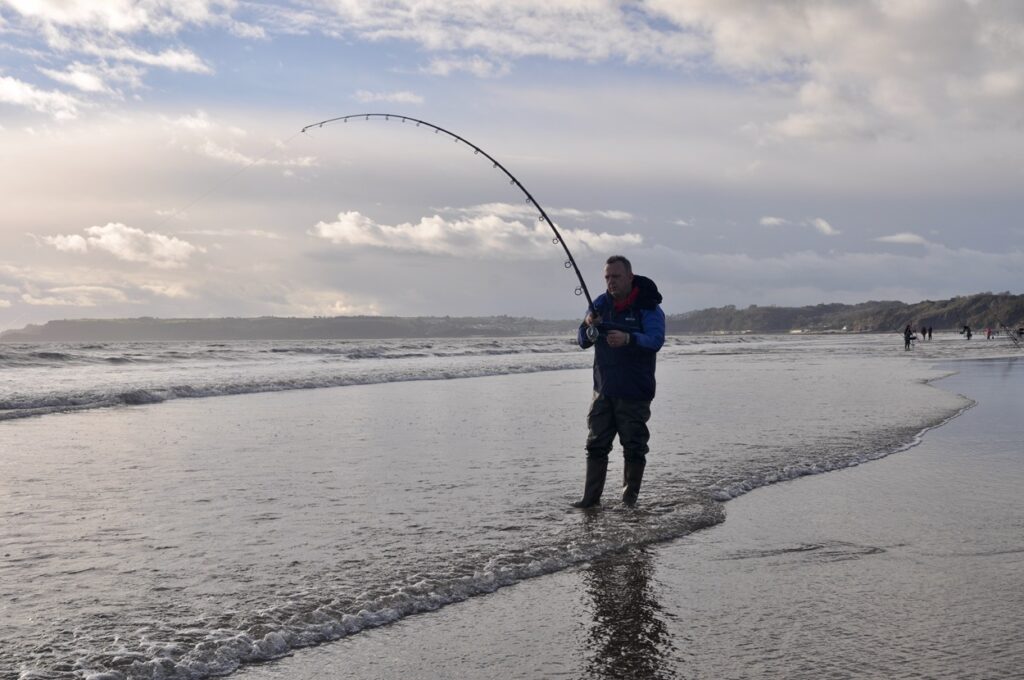
Certainly, when it comes to targeting species such as mullet and smoothounds you’d do well to avoid the fin frosting sea temperatures of mid-winter, but as we will see for some species such conditions are ideal. Indeed, I would go so far as to say that many of the most productive days beach fishing I have ever experienced have occurred during the shortest days of the year.
Wales is blessed with many beautiful sandy beaches, which begin around Porthcawl in the south and extend right the way around the coastline to the Dee estuary in the north. Some of these are huge expanses of golden sand that extend for several miles, others are much smaller, hidden gems you’ll find tucked away amidst an otherwise rocky coast. Regardless of their size, all will produce fish.
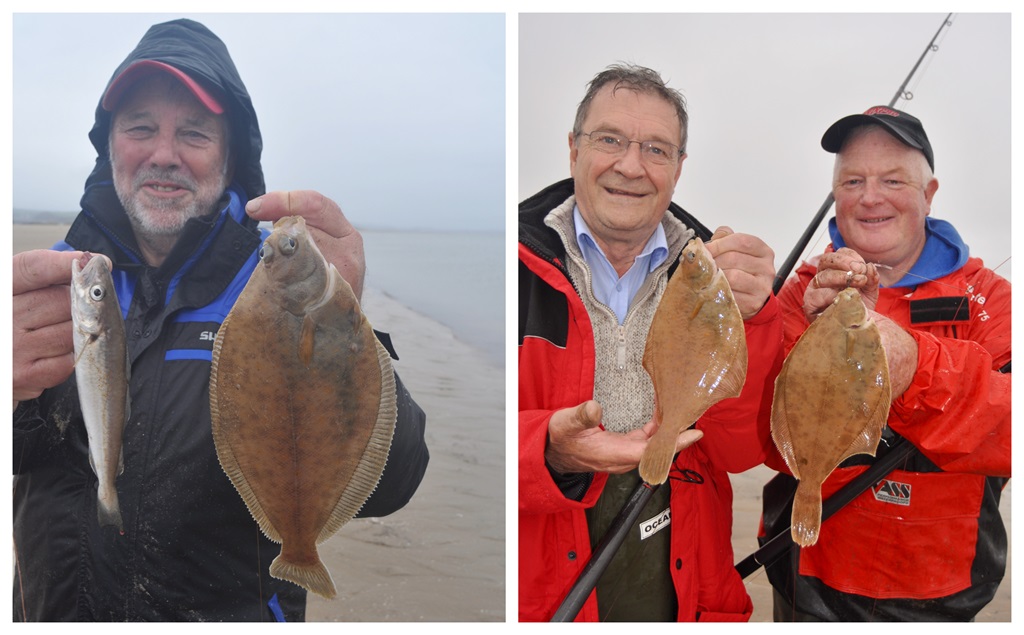
Depending on your location the species you can expect to catch from Welsh beaches during the winter include dabs, flounder, whiting, dogfish of course, and occasionally small turbot and codling. These days you can catch bass in a winter surf as well, something which was unheard of when I started out as a sea angler.
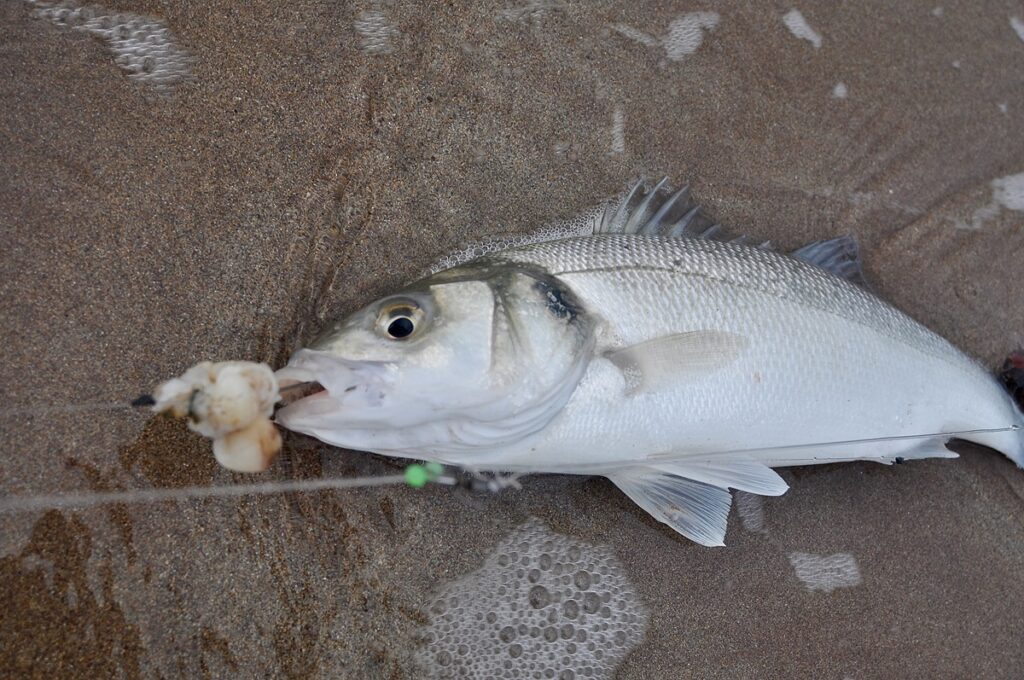
Mostly these will be small school bass, but it’s a not very well-kept secret that fishing some surf beaches at the very end of winter can produce exceptional fish. Big baits such as a mackerel head and guts, whole squid or a fist sized lump of fresh clam are the go to baits for specimen hunters, looking to catch that double figure bass of a lifetime.
For most of the other species that you can expect to catch during the winter over open sand in Wales, you’ll need to scale down.
Typically I use a two or three hook paternoster rig, also known as a flapper rig. My surf beach rigs are tied with long shank Aberdeen hooks between size 1-4/0. The longer shank of these are perfect for efficient bait presentation, and they make it so much easier to remove from the various species of flatfish you can catch.
As you’ll be fishing over generally clean and snag free ground there’s no need to incorporate a weak link, known as a ‘rotten bottom’, to attach the lead. I carry a selection of leads weighing between 2-5oz, including breakout style grip leads which I use when fishing a hefty surf or swell.
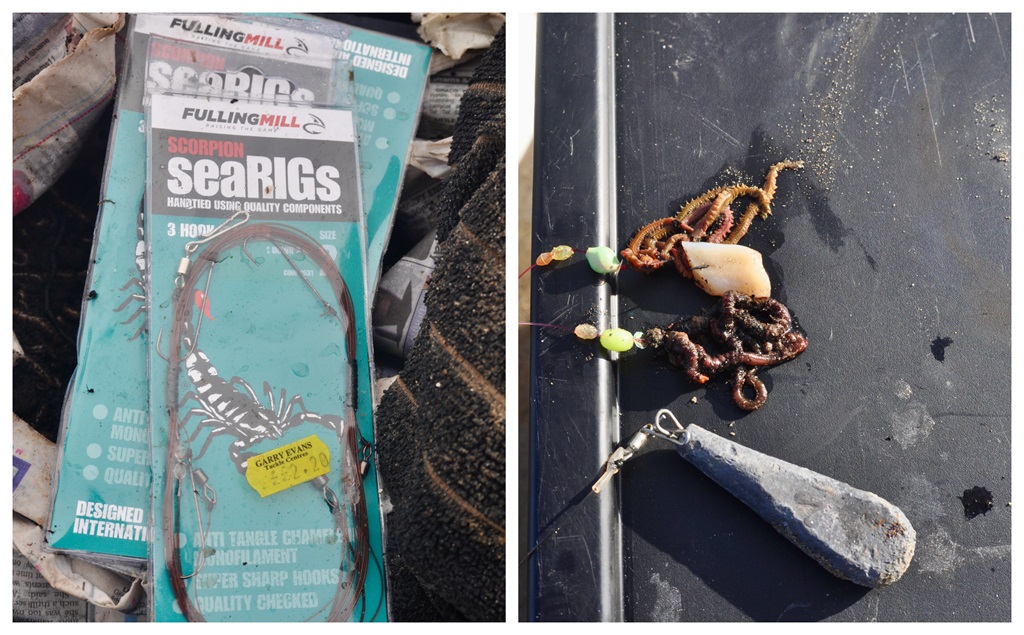
I also carry a selection of plain leads which are preferable when fishing more sedate conditions. Useful tip: using a hammer to partially flatten a bomb shaped lead produces a lead that will ‘hug’ the bottom perfectly, ideal for use when there is just a gentle surf. As usual your choice of bait will be dictated by your target species. Maddies which are also known as harbour ragworm, or mudworm here in Wales, are an excellent bait that will catch a wide variety of species, notably flounder.
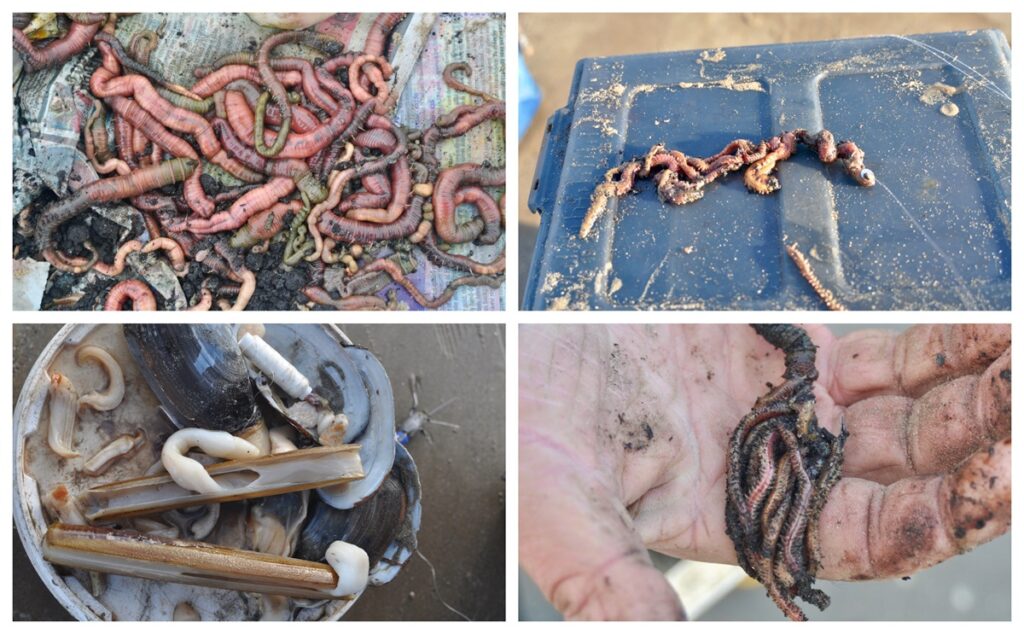
Lugworm, both blow and black, are very effective for most species, as are razorfish. If there are whiting around then all you’ll need is small cuts of mackerel or herring, a bait which will catch plenty of dabs. And when it comes to dabs now is the time of the year to dig deep in your bait freezer and use those long frozen packs of black lug, squid and pretty much any other old bait seemingly way past their use date. These baits are perfect for catching dabs.
I have always found odd as freshly caught dabs are one of the tastiest fish you can eat, and they will be in prime conditions throughout the winter months.
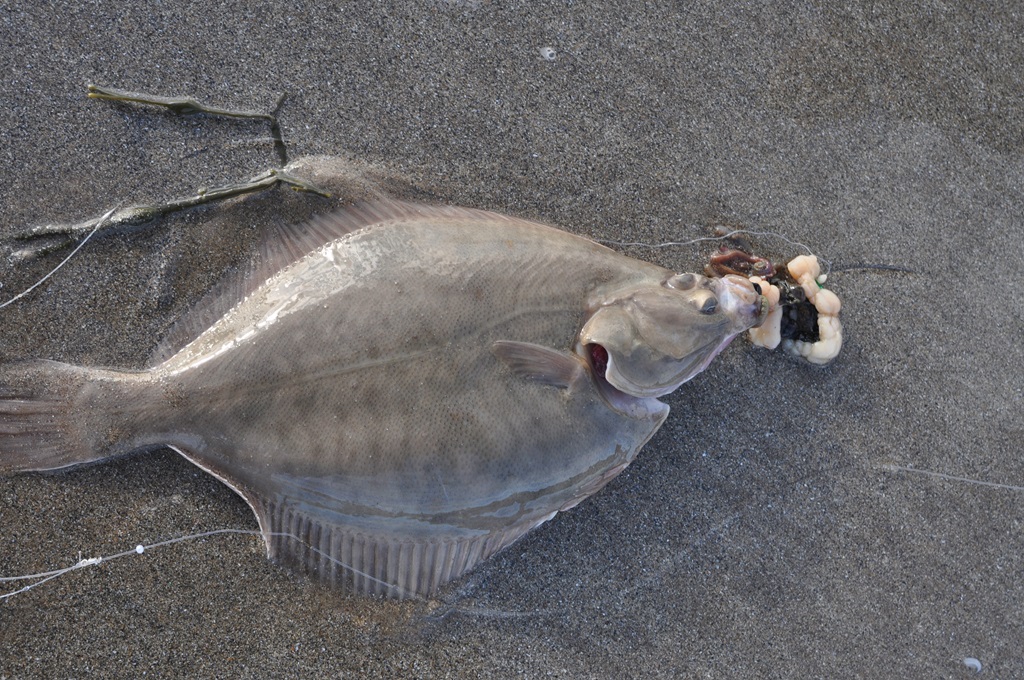
All beaches will fish at their very best on different sizes and stages of the twice daily tidal cycle. Thankfully there are a few common denominators. For example, very few of the sandy beaches that I fish produce at their best on the larger spring tides; I’d sooner fish a small neap tide than a spring. Given the choice I’ll pick a mid-range ride, ideally one between about 11.2m and 11.8m on the Swansea scale.
If you have never fished a beach before I suggest you time your arrival to coincide with low water. This will allow you to study the topography of the inter-tidal zone, showing you exactly what you’ll be fishing over when these are covered by the tide, whilst noting fish holding features such as gullies and sand bars.
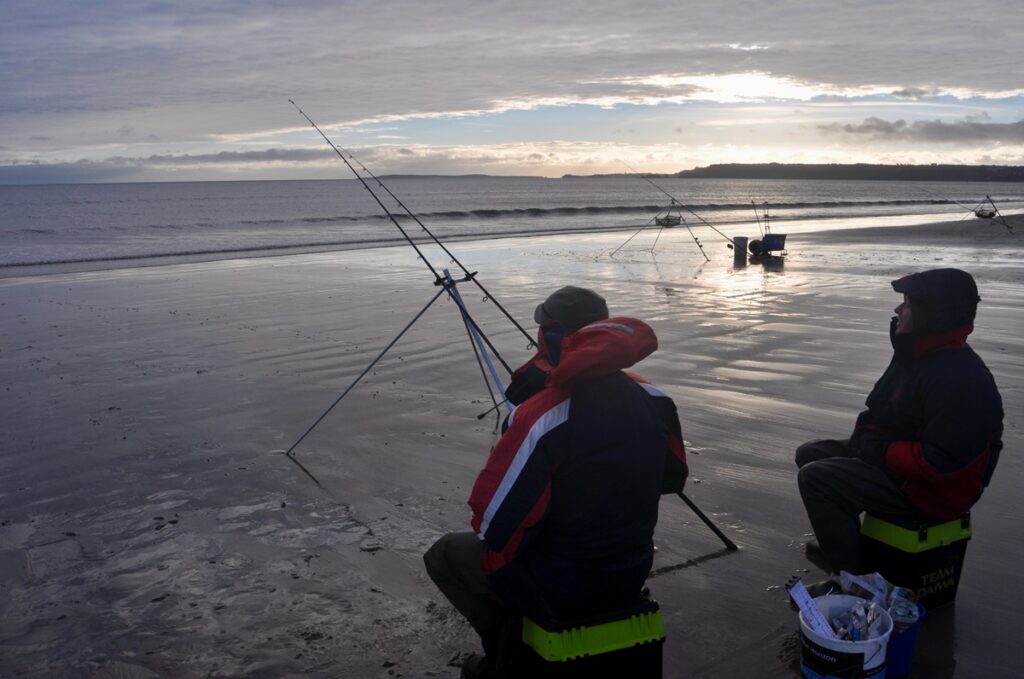
Some beaches fish at their best during the first few hours of the flood, others over the high water period. I have consistently found that when fishing several open surf beaches here in South Wales, that the last three hours of the ebb tide down to low water is the absolute prime time.
As always local knowledge is everything. You’ll be able to glean a lot of local information from the various social media platforms, but intel thus gained ranges from accurate to useless. The very best place to find out what’s being caught, along with where and when, is undoubtedly the local tackle shop. Thankfully you’ll never be too far from one of these, pretty much anywhere you find yourself near the coast in Wales!
Finally, there is one other huge advantage in fishing a surf beach during the winter. During the warmer months anglers have to share the beach with a seemingly ever increasing number of other beach users; which is exactly how it should be. However, given the numbers of surfers, kite surfers, paddle boarders, ’wild swimmers’ and other day trippers, finding a quiet spot to fish in comfort and most importantly safely, can at times be difficult.
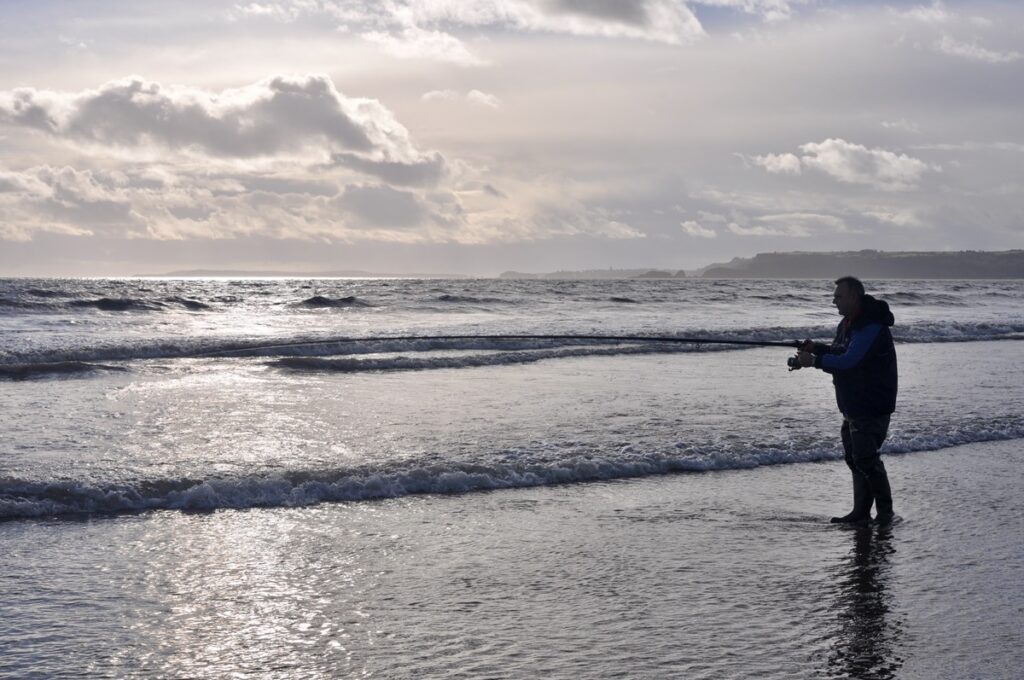
Aside from a few hard core surfers and an occasional dog walker, during the winter months you’ll likely have the entire beach or at least vast sections of it all to yourself. Please note that dogs are only allowed on many Welsh beaches during certain months of the year, information on where and when restrictions apply can be found online.
And perhaps best of all during the winter months many local councils suspend all parking charges, with the result that in many cases you can park and then fish within a short distance of your car, for absolutely nothing!
Words & Image: Dave lewis
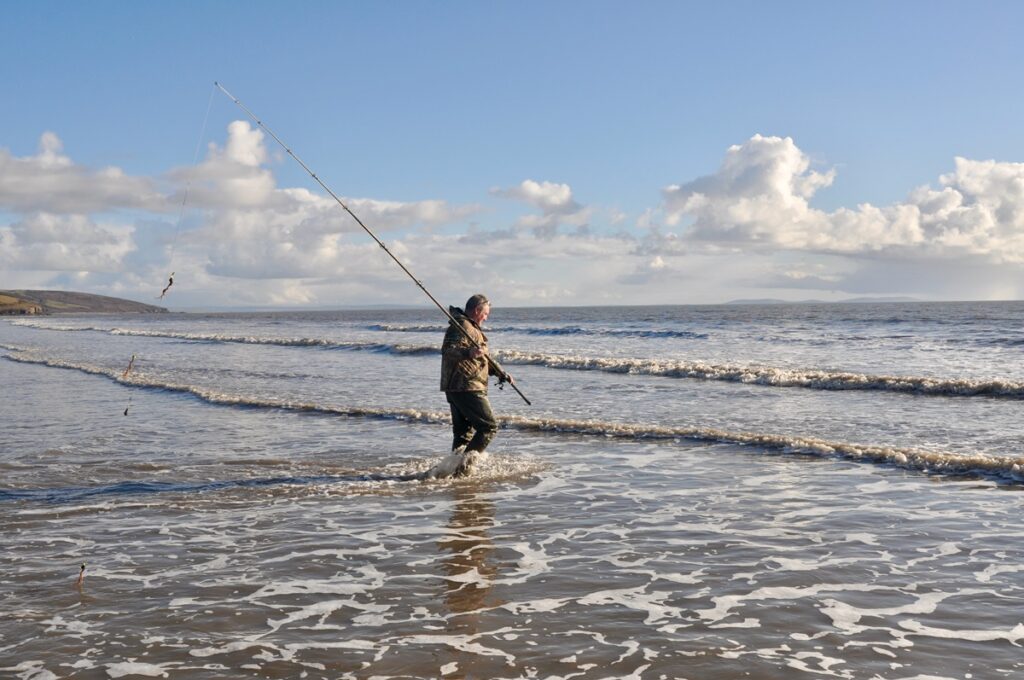
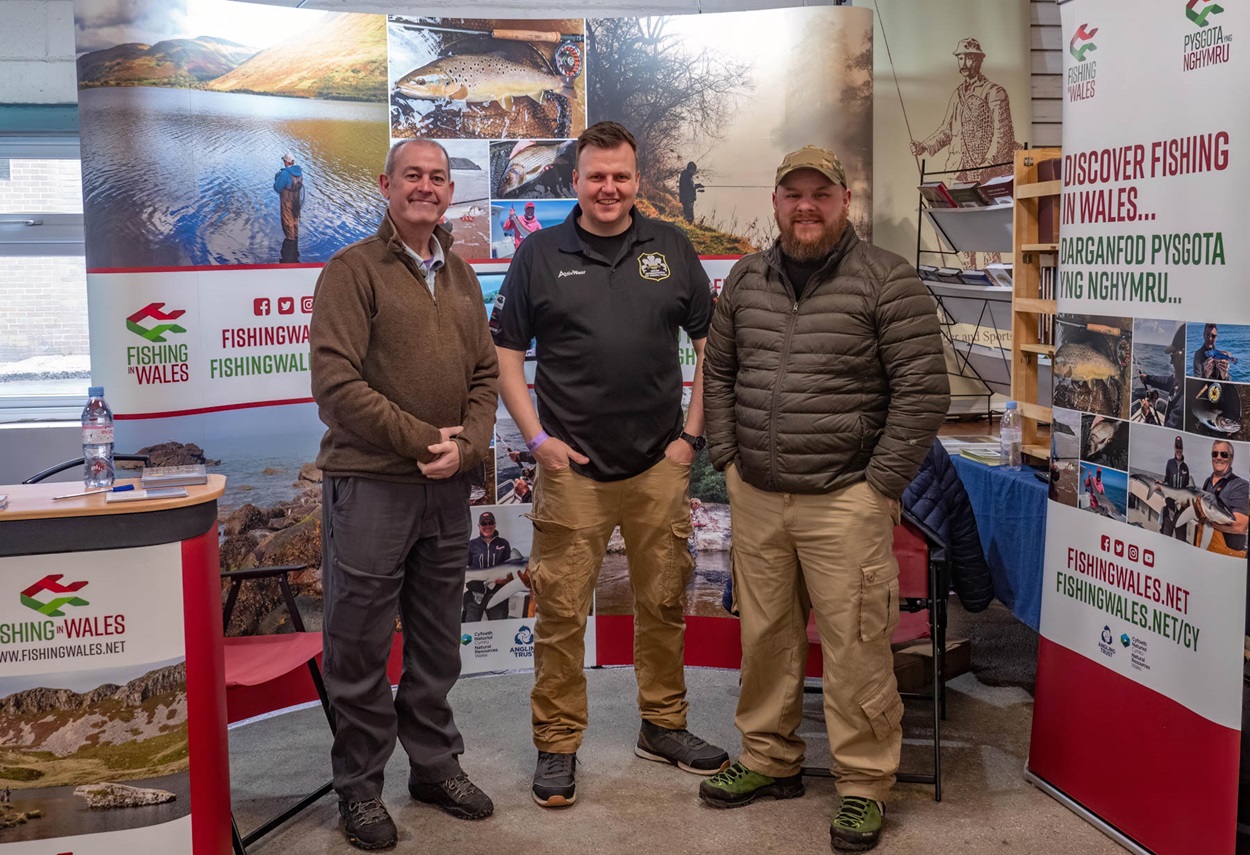
Fishing In Wales at the BFFI show - 8th and 9th February 2025
‘Fishing in Wales’ will be attending the British Fly Fair International (BFFI) at the Staffordshire County…
Read More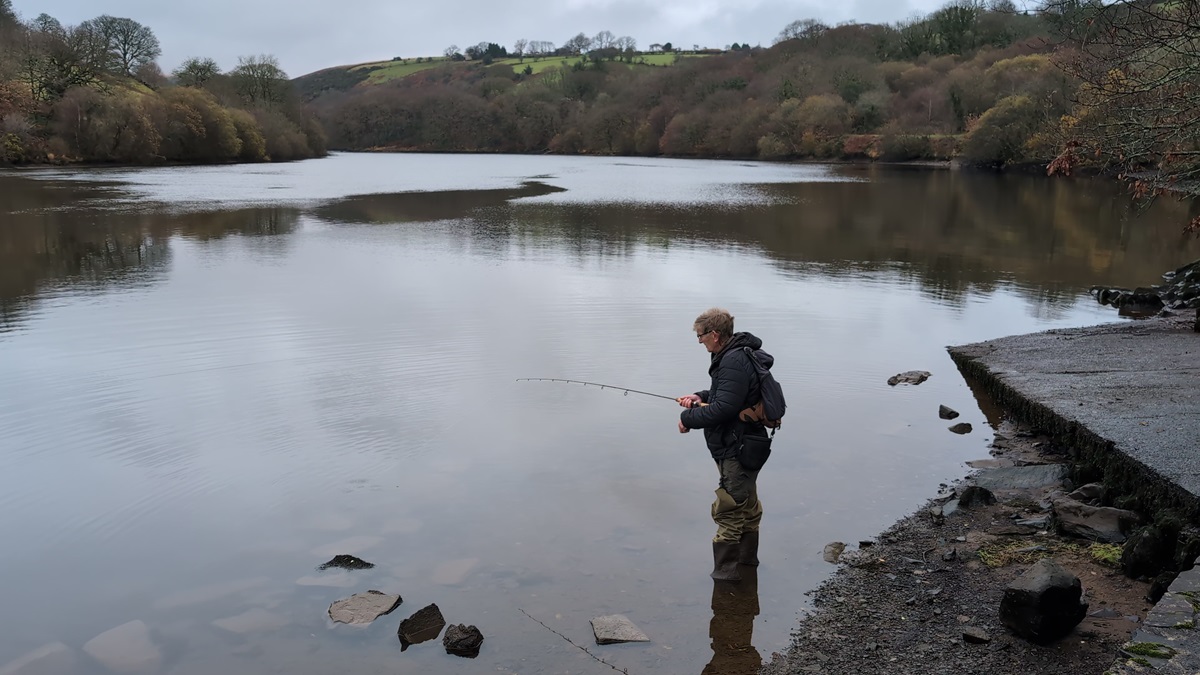
Multi Method Trout Fishing VIDEO - Lower Lliw Reservoir Swansea
On a mid-winters day we visit the Lower Lliw Reservoir near Swansea, a multi method day ticket fishery which…
Read More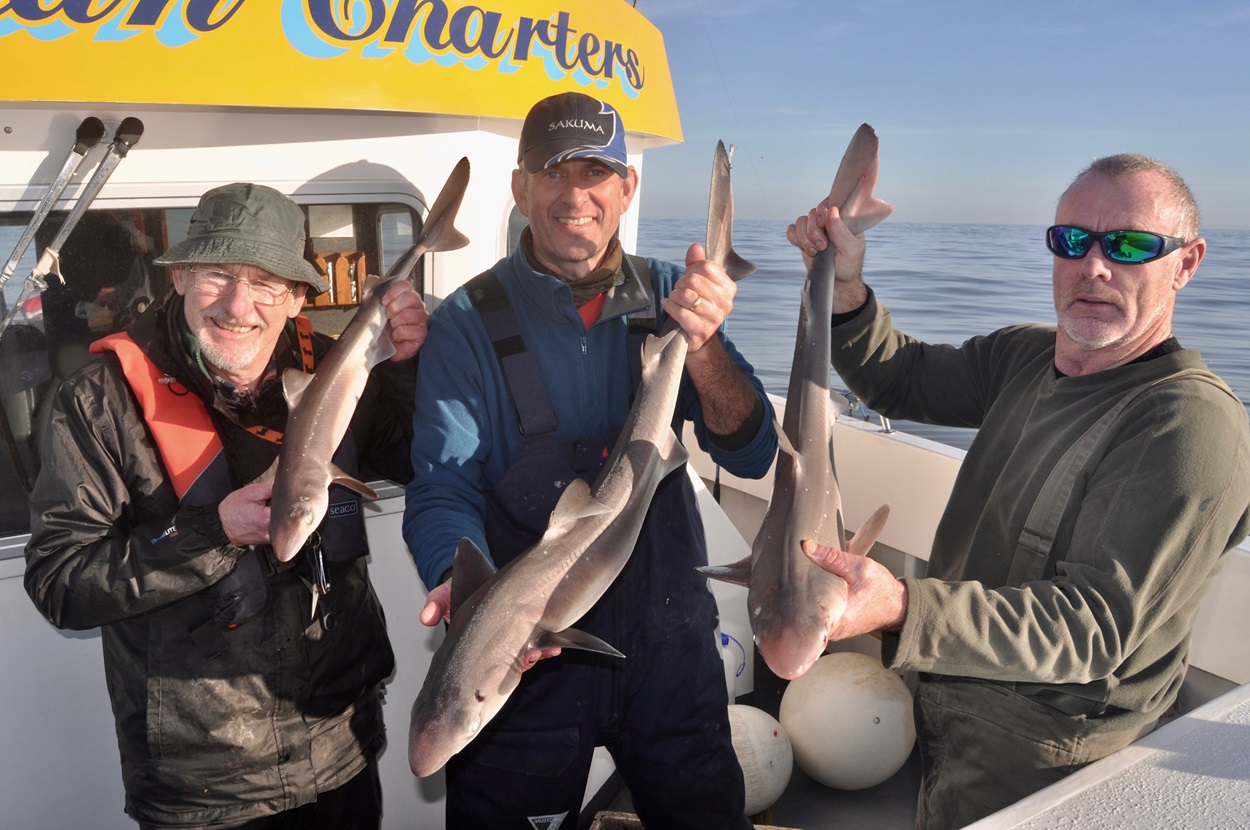
Offshore Boat Angling For Winter Species
Dave Lewis reports on fishing deep water marks in mid-winter, for a variety of hardy marine species.“The Mongrels’, that’s how…
Read More